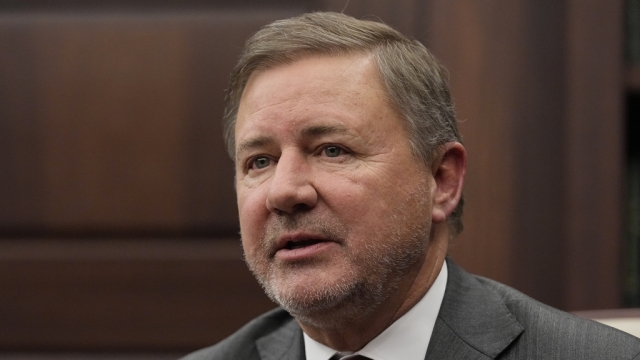On Monday, an Oklahoma school board approved what would be the first taxpayer-funded religious school in the U.S., but the state's attorney general is questioning the vote.
After an almost three-hour-long meeting, the Oklahoma Statewide Virtual School Board voted 3-2 to approve the Catholic Archdiocese of Oklahoma's application to open St. Isidore of Seville Virtual Charter School in 2024.
But now, Oklahoma Attorney General Gentner Drummond says newly appointed board member Brian Bobek, who cast the deciding vote to approve the online public school, may not have been eligible to vote.
In a memo received by Scripps News Tulsa, Drummond noted that board member appointments take effect on Nov. 1 and that any vacancies should be filled by an appointing authority. But he said Bobek had replaced a board member who requested to be reappointed and who was only made aware Bobek was replacing him on June 2, three days before the school vote.
Because there was no vacancy on the board that lent to an immediate placement of a new member, Drummond said the former member should still serve until Bobek is qualified on Nov. 1. That would make his participation in the vote questionable.
The chairman of the school board told Scripps News Tulsa he didn't see the memo until the meeting ended, though it was sent before.
"My wife and I were going to dinner," Chairman Robert Franklin said. "I look down at my email to just kind of disclose and see all what was happening. And I saw the email and I was taken aback of its contents."
On top of the issue with Bobek, Drummond has taken issue with the proposal in general. After the vote, he said it was an unconstitutional move that isn't in a taxpayer's "best interest."
"It's extremely disappointing that board members violated their oath in order to fund religious schools with our tax dollars," Drummond said. "In doing so, these members have exposed themselves and the state to potential legal action that could be costly."
In April, the school board delayed the vote due to issues with the proposal — including possible lawsuits that could arise, as Drummond noted.
Charter schools and public schools are both funded by taxpayer dollars, but charter schools have more freedom in their operation.
Supporters of religious charter schools — like Brett Farley, executive director for the Catholic Conference of Oklahoma — say St. Isidore will give Catholic families in Oklahoma another option when it comes to the education of grades kindergarten through 12.
In an interview with Scripps News, Farley said there's no difference between tax money going directly to a religious charter school or to other existing tax-funded school programs, like some scholarships.
"Parents are still making the choice whether they're going to send their kids to those schools, so the operative action in this situation is the parents choosing," Farley said. "Whether the money is going to the parent and then to the school or directly to the school, really is a distinction without a difference."
But opponents of religious charters schools, like the National Alliance for Public Charter Schools, say they blur the line between church and state, since government funds would be supporting religious schooling.
In an interview with Scripps News, Debbie Veney, the alliance's vice president of communications and marketing, said because of that distinction, she believes the decision will be struck down.
"It's religious discrimination to treat one type of entity differently than you would treat another if you're going to be giving public funds to two private entities," Veney said. "The distinction here is: This is talking about giving public funds to a public entity, which would then not operate in the way that we've always known public schools to operate, which is being nonsectarian."
SEE MORE: Bill requiring Ten Commandments in Texas schools fails
Trending stories at Scrippsnews.com



